The Michael Cohen and Paul Manafort legal dramas will continue, posing new perils for Trump
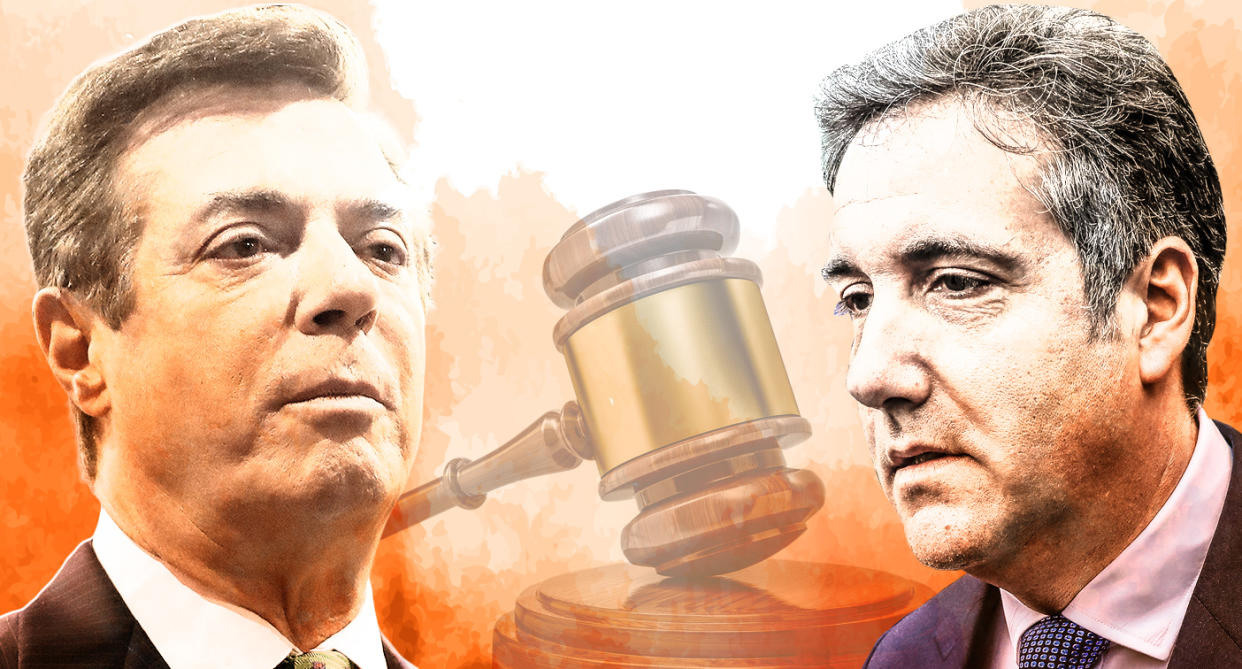
WASHINGTON — The country hasn’t heard the last of Paul Manafort and Michael Cohen — far from it.
The two erstwhile allies of President Trump were dealt nearly simultaneous legal blows in separate courtrooms Tuesday afternoon, with each man ending the day convicted of eight felonies. The proceedings left major lingering questions and strong indications that the courtroom dramas surrounding Manafort and Cohen are far from over. And the outcomes in both cases advanced the sharp edges of legal danger toward Trump and members of his inner circle.
With both Cohen and Manafort facing other ongoing investigations and steep sentences from Tuesday’s judgments, the two men are under increasing pressure to cooperate with prosecutors investigating Trump, led by special counsel Robert Mueller, who is conducting a probe of Russia’s interference in the 2016 election.
In Cohen’s case, his statements in court, and remarks by his lawyer on television, strongly suggested he may already have the beginnings of a deal to testify against the president — or he’s extremely eager to make one.
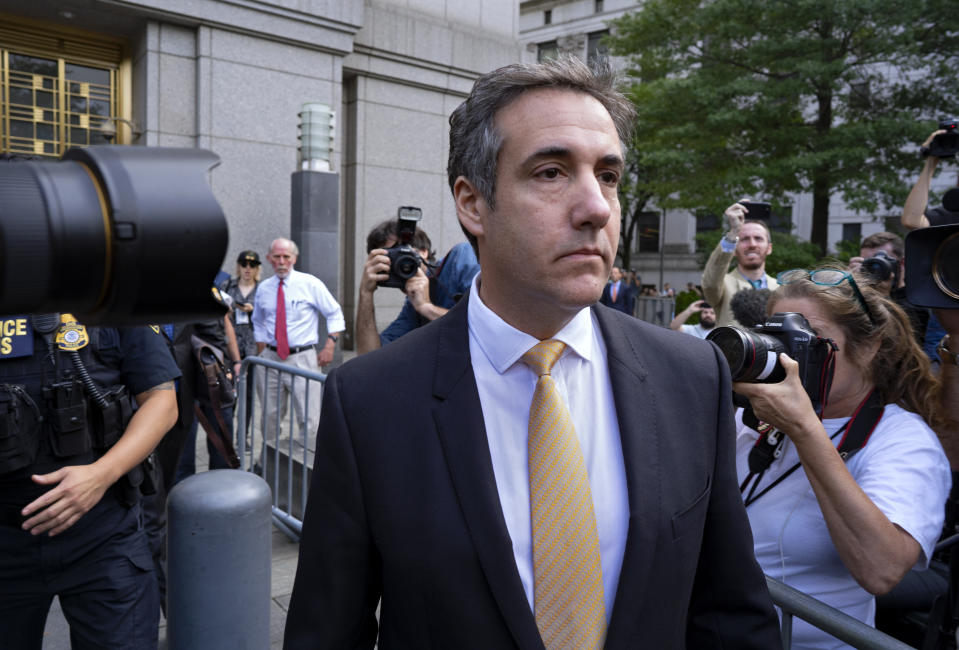
For Manafort, who is the only major figure indicted by Mueller to go to trial, the incentives to make a deal have grown. Manafort, who was one of Trump’s campaign managers in 2016, was convicted on eight counts relating to his international political consulting business and his personal finances. Those convictions alone — five counts of tax fraud, two counts of bank fraud, and one count of failing to file a report on foreign bank accounts — are likely sufficient to produce a sentence that will keep the veteran political operative in prison for the rest of his life. While Manafort’s convictions are not directly related to any conduct involving the president, his knowledge about the president, his campaign and its mysterious entanglements with Russia are Manafort’s most powerful bargaining chip to reduce the sentence he is now facing.
And Manafort is staring at a forbidding legal landscape beyond Tuesday’s convictions. The jury couldn’t come to a decision on 10 of the charges in the Manafort indictment, leading the judge to declare a mistrial on those counts. Mueller’s office will indicate by Aug. 29 whether it will seek to retry Manafort on the remaining 10 counts before a different jury. Regardless, Manafort will face a separate trial in Washington, D.C., next month relating to his lobbying activities on behalf of Ukraine.
Manafort, who remains in jail in Alexandria, Va., must decide whether he stands a better chance of regaining his freedom by agreeing to cooperate with Mueller’s prosecutors in their Russia investigation or holding out and hoping that Trump grants him a presidential pardon. Manafort’s lead attorney, Kevin Downing, did not respond to a request for comment.
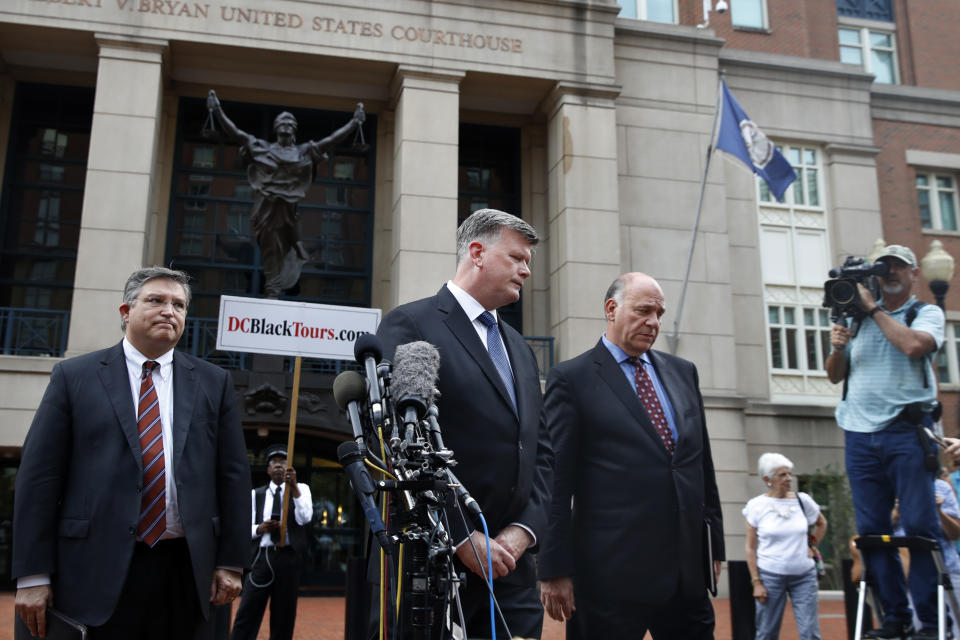
And Trump has sent some signals that Manafort has his support. Trump reacted to the guilty verdicts on Tuesday evening as he flew to a West Virginia rally on board Air Force One, calling Manafort a “good man.” But Trump also distanced himself from Manafort and declared that the case “doesn’t involve me.”
“It’s a very sad thing that happened,” Trump said of Manafort’s conviction.
Trump had a far less sympathetic assessment of Cohen’s plea when he took to Twitter Wednesday morning.
“If anyone is looking for a good lawyer, I would strongly suggest that you don’t retain the services of Michael Cohen!” he wrote.
Related: Trump calls Manafort a stand-up guy, Cohen a snitch
Earlier, the White House referred questions about Cohen to Trump’s outside counsel, who did not respond to requests for comment.
Cohen, who was Trump’s personal attorney, pleaded guilty to eight felonies in a federal court in Manhattan on Tuesday. The bulk of the crimes Cohen admitted to related to his personal finances, including charges of tax evasion and making false statements to a bank in order to receive a loan. But he also directly implicated Trump in two campaign-finance-related schemes during the 2016 general election.
The charging document prepared by prosecutors for the United States attorney’s office for the Southern District of New York detailed Cohen’s efforts to aid the president’s campaign by trying to suppress the stories of two women who claimed they had affairs with Trump in 2006 and 2007. According to prosecutors, Cohen arranged payments to the women, Karen McDougal and Stephanie Clifford (aka Stormy Daniels), in successful efforts to buy their silence ahead of the election, and each of those payments amounted to an illegal campaign contribution.
In Cohen’s allocution — the legal term for the confession of his crimes in his own words in open court — he admitted each of the eight counts in the charging document. That would have been enough to spell deep trouble for Trump and his inner circle, as the case against Cohen outlined by prosecutors strongly suggested wrongdoing by other senior officials at Trump’s real estate company and other allies of the president. But Cohen’s allocution went even further, making headlines around the world by including an admission that Cohen had made the payments “in coordination with and at the direction of” then-candidate Trump (not identified by name in open court) for the “principal purpose” of influencing the 2016 election.
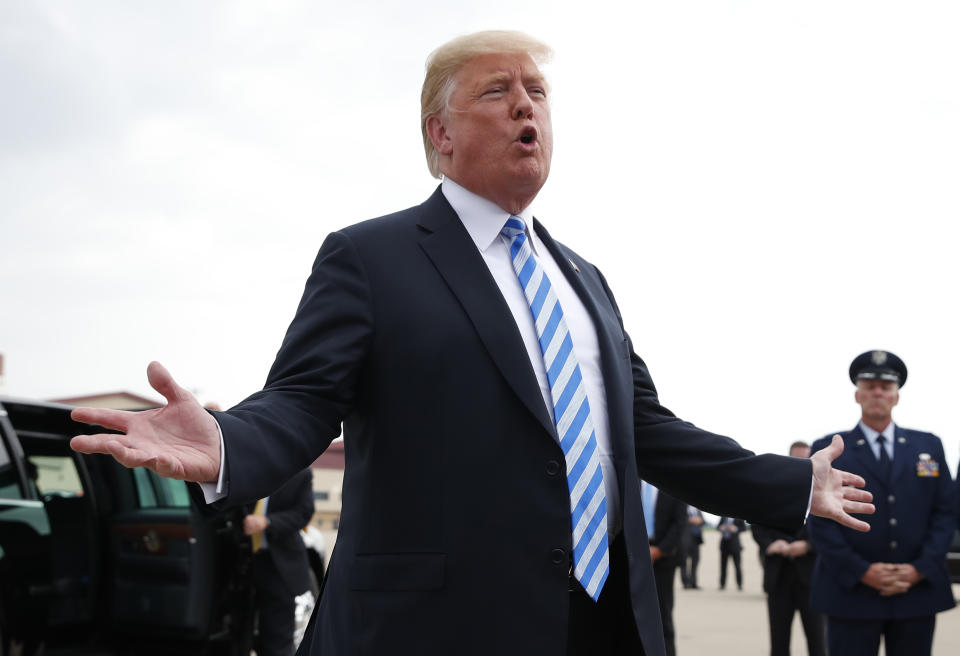
Tuesday’s legal proceedings did not require Cohen to implicate the president. In his allocution, Cohen needed to show only that he actually committed the crimes he was admitting to. Cohen’s explosive statements went far beyond this standard, since the prosecutors’ charging document did not describe Trump directing him to silence the women before the election. Receiving directions from Trump was not an element of any of the crimes to which Cohen confessed. In effect, Cohen went out of his way to confess to a conspiracy involving Trump that had not been charged.
It is unclear why he pointed the finger at Trump. Was he acting in accordance with an as-yet-unknown understanding with prosecutors by providing damaging evidence against the president? Or was he simply adding details to the story on his own?
As of now, Cohen’s plea deal does not contain any express agreement for him to work with Mueller or other prosecutors. But prosecutors are still free to seek his cooperation, and Cohen, who has previously cited his wife and children as his first priorities, will have strong incentives to provide it.
Cohen’s eight admitted felonies carry heavy sentences. And, like Manafort, he could end up back in court for a separate trial. In addition to the case involving Cohen’s finances and the payments to the women, Mueller has also been investigating him for his role in a plan to build a Trump Tower in Moscow while he worked at the president’s real estate company. With Cohen risking so much potential prison time, prosecutors may seek to strike a bargain exchanging testimony against other targets of Mueller’s probe for a recommendation to the judge to reduce Cohen’s sentence.
Under his current plea agreement, Cohen faces a maximum of 65 years in prison for the eight counts he has admitted to. However, in exchange for the plea, the government agreed to tell the court that a prison sentence for Cohen in the range of 46 to 63 months is appropriate. Even with that recommendation, Cohen still faces more jail time than would be expected for a key cooperating witness.
The questions surrounding Cohen’s potential cooperation clearly have the attention of the West Wing. A source who worked on the Trump campaign said members of Trump’s inner circle were abuzz over Cohen’s comments in court that implicated the president.
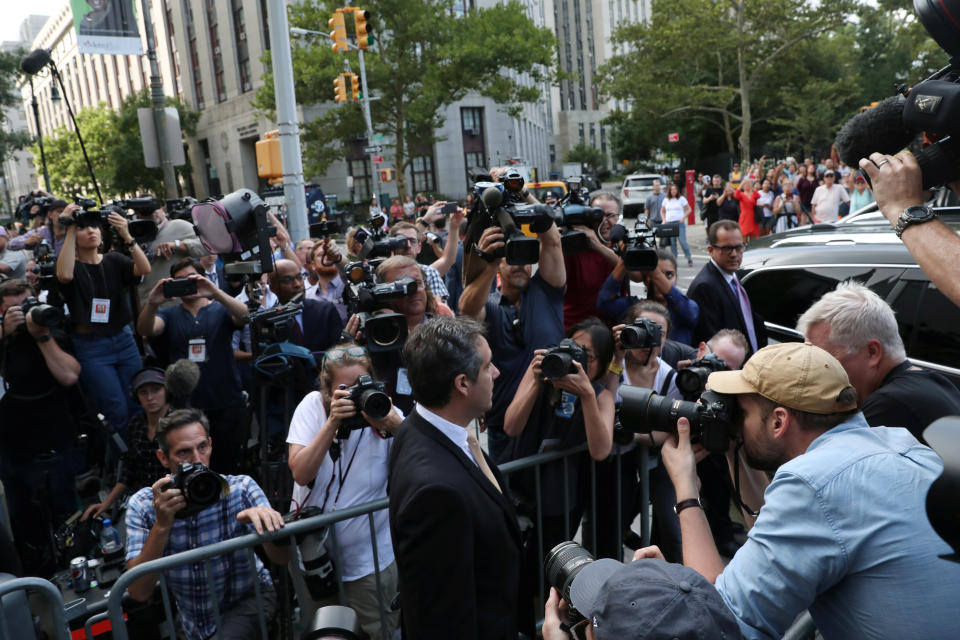
“In my conversations with several people inside the White House and outside, there’s confusion about this Michael Cohen thing,” the source said. “If he made this statement in court, does he have evidence supporting it? And if he does have evidence, why couldn’t he get a deal?”
The source said they don’t believe that Cohen’s claim that Trump directed him to pay off the women will be problematic for the president unless there’s evidence to back it up.
“Does he have any documentary evidence to support that claim?” the campaign source asked about Cohen. “If he does, then good for him. If he doesn’t, then this is just another hiccup. We’ll see.”
Cohen’s attorney, Lanny Davis, took to the airwaves on MSNBC Tuesday night, indicating that his client doesn’t currently have a deal with Mueller. However, Davis suggested the special counsel could advance the case against Trump with Cohen’s cooperation.
“Mr. Mueller, who I greatly respect, will have a lot of interest in what Michael has to say,” Davis said.
The special counsel’s office declined to comment.
For now, it’s unclear why Cohen was not able to secure a better deal from prosecutors if he was willing and able to give evidence against Trump or other key members of the president’s inner circle.
One possibility is that prosecutors obtained so much evidence when the FBI searched Cohen’s office, home, hotel room and safety deposit box in April that they do not believe they need his testimony as well. Thousands of items were taken by the FBI in those raids, including a series of recordings Cohen made, some featuring Trump himself.
Cohen’s tapes were thrust into the spotlight in recent weeks when he and Davis made a series of television appearances that seemed like an audition for a potential deal with prosecutors. The media blitz included Davis providing CNN with a recording in which Trump and Cohen discussed the payment to McDougal. While Davis has been the public face of Cohen’s legal team, two other attorneys, Guy Petrillo and Amy Lester, represented him in court on Tuesday.
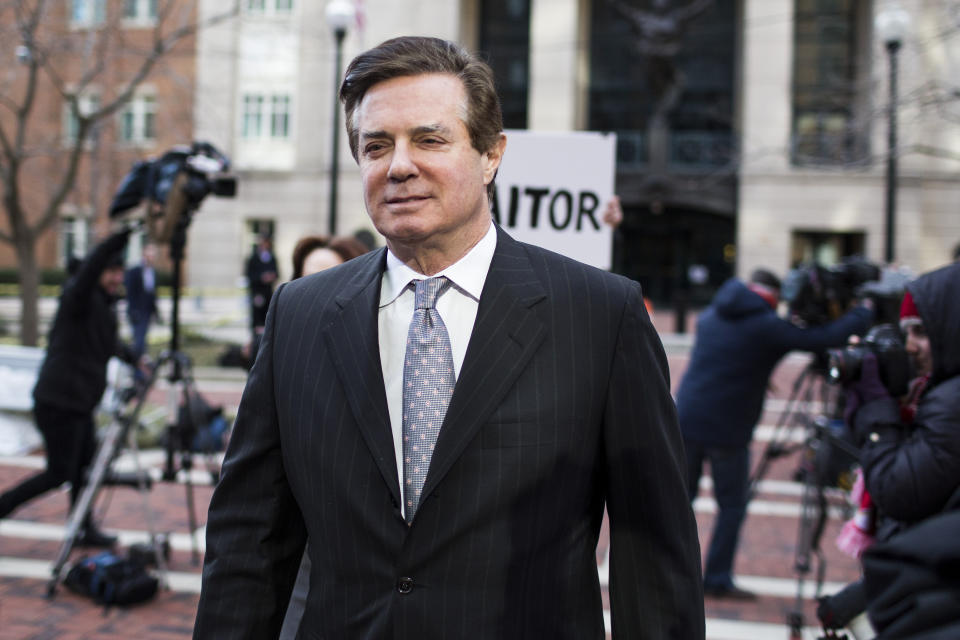
Davis continued his press tour into Wednesday, when he went on “Morning Joe” to announce a “Michael Cohen Truth Fund” that is accepting donations. In a Tuesday night interview with NPR, Davis declared that Cohen “would never accept a pardon from a man that he considers to be both corrupt and a dangerous person in the Oval Office.”
A pardon from Trump was unlikely for Cohen regardless of his newfound distaste for the president. The campaign source said they could see the president stepping in to help Manafort — but not Cohen.
“Could Manafort get some type of pardon? Sure,” the source said, adding, “Timing matters. Is it two and a half years from now, just after the president wins reelection? Or is it on the tail end of it? … The timing is interesting.”
The campaign source said Cohen was unlikely to receive similar help from the president.
“I think there’s a little bit of distinction with Manafort by how he behaved himself through the process. He wasn’t seeking media attention. … He didn’t share audiotapes like Cohen,” the source explained. “Sharing that audiotape was just going too far. … There’s no returning from the plane of that tape, and it actually didn’t get them the deal that they wanted.”
_____
Read more from Yahoo News:


